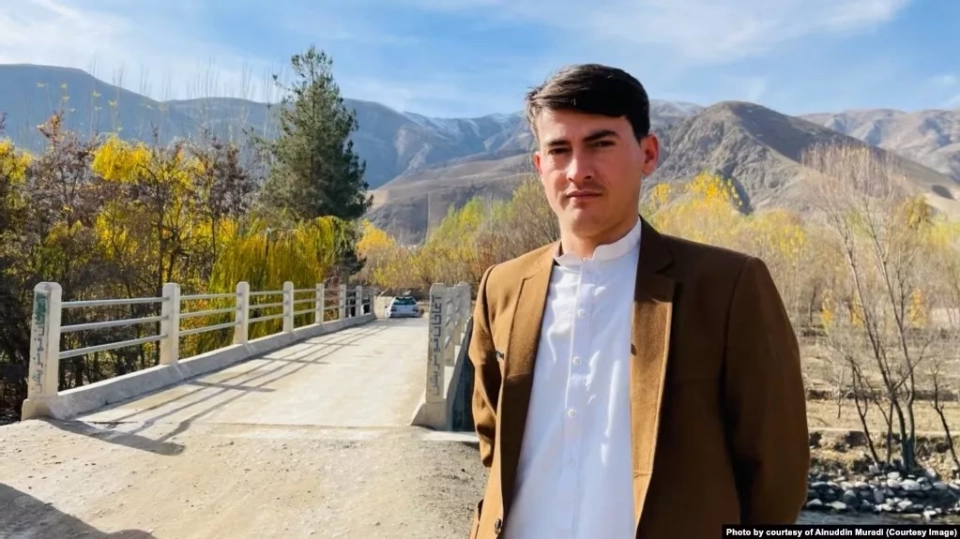"‘They said I am not Kazakh.’ Hundreds of repatriates from Afghanistan have lost their citizenship in Kazakhstan and live in a state of limbo."
Ainuddin, a native of the Afghan province of Kunduz, first set foot on Kazakh soil in 2016. He arrived in Kazakhstan with a group of students enrolled in preparatory courses at an Almaty university. Being the only one who spoke Kazakh, he acted as a translator between the Afghan students and local teachers.
Two years later, Ainuddin enrolled in Karaganda Technical University, where he obtained a residence permit and a kanda certificate. He submitted documents for Kazakh citizenship, attaching a certificate with stamps from the Ministry of Internal Affairs and the Ministry of Foreign Affairs of Afghanistan, confirming his ethnic Kazakh identity, as well as a certificate of no criminal record. In 2019, he was issued a passport of a citizen of Kazakhstan, and he joyfully celebrated this event.
After obtaining citizenship, Ainuddin got married, had a child, and found a job at a company in Karaganda. Later, he brought two younger brothers to Kazakhstan, who were also issued Kazakh documents.
However, in the summer of 2024, the brothers learned that their citizenship had been revoked. Ainuddin found out from the migration police that a certificate had arrived from Afghanistan stating that he was not Kazakh, but an ethnic Uzbek. As a result, he lost not only his citizenship but also his job, as employers do not accept employees without identification documents.
Ainuddin is disappointed with the authorities' decisions. He emphasizes that kandasy, regardless of where they came from, aspired to live on their native land and wished to contribute to the development of Kazakhstan. He is confident in his Kazakh origins—his family always spoke Kazakh and adhered to traditions.
“My father always said: 'The native language is our honor.' We have not forgotten our customs and traditions. I was engaged in childhood, and now I have a Kazakh child,” says Ainuddin.
He is currently engaged in a legal battle to prove his Kazakh heritage. The initial court in Karaganda recognized the revocation of his citizenship as unlawful, stating that the migration police had not properly notified him of the deprivation of citizenship. However, in the appellate court, the decision was overturned, and it was established that the data regarding his ethnic affiliation was inaccurate.
More than 200 Afghan repatriates have also faced a similar situation and lost their Kazakh documents.
According to human rights activist Bakht Sarai, who helps repatriates restore their citizenship, problems began in 2023 when Kazakhstan received data from the Afghan embassy about residents who are not ethnic Kazakhs. “In the documents they provided, their Kazakh nationality was indicated, but now the migration police claim otherwise,” she notes.
Over the past two years, Kazakh migration authorities have revoked the citizenship of about 250 Afghans, many of whom have long settled in the country, started families, and have children. They renounced their Afghan citizenship, as dual citizenship is prohibited in Kazakhstan, and now may find themselves without citizenship at all.
People are afraid to return to Afghanistan, fearing that their children will struggle to adapt to society, as Sarai emphasizes in an interview.
“I WAS TOLD THAT THIS IS MY PROBLEM.” CHALLENGES WITHOUT DOCUMENTS
The lack of citizenship complicates life in Kazakhstan: without documents, it is impossible to find a job, receive free medical care, and access social assistance.
After gaining independence in 1991, Kazakhstan adopted a program to attract Kazakhs from abroad, as ethnic Kazakhs made up only 37% of the population. Over three decades, more than 1.15 million ethnic Kazakhs have moved to the country, including about 13,000 from Afghanistan. This situation indicates that many Kazakhs who found themselves in Afghanistan due to historical upheavals have returned to their homeland.
The Ministry of Internal Affairs of Kazakhstan reported that the revocation of citizenship occurred based on data from "authorized bodies." The department claims that some migrants provided forged documents confirming their ethnic affiliation.
Courts, according to the Ministry of Internal Affairs, recognized the revocation of citizenship as lawful. Those who lost their citizenship must apply to their countries for foreign passports and legalize their status in Kazakhstan, and they can also apply for citizenship in the usual manner.
The loss of citizenship has already changed the lives of many migrants. 56-year-old Abdul Khalil Najibullah lost his agricultural business after his citizenship was revoked in 2021. He moved to Kazakhstan in 2000 with his family, but this year he learned that he and his children had been stripped of their citizenship. “I asked how I was supposed to live without documents, but I was told that this is my problem,” he shares his experience.
Read also:
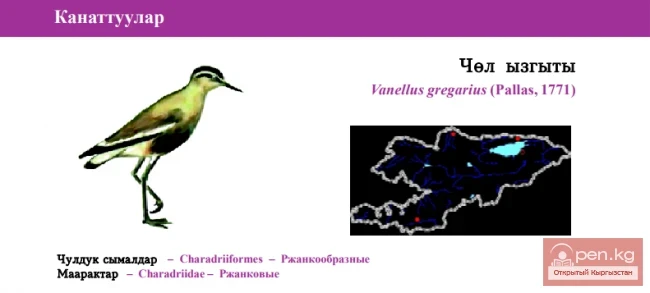
Krechetka / Cheł yzyty / Sociable Plover
Sociable Plover Status: III category, Critically Endangered, CR, A3bc. Endemic to Kazakhstan and...
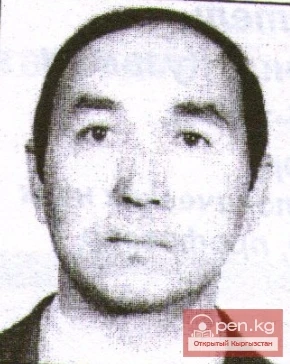
Omorov Turatbek Tursunbekovich
Omorov Turatbek Tursunbekovich (1951), Doctor of Technical Sciences (1997), Laureate of the State...
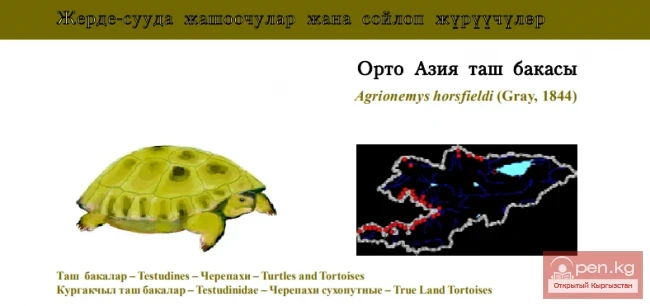
Central Asian Tortoise \ Orto Asia Tortoise / Steppe, or Afghan, Tortoise
Central Asian Tortoise Status: VU Blab (ii, iii, v); Cl. A representative of a monotypic genus,...
Former director of GP "Kyrgyzkomur" and his acquaintance charged with concealing coal production volumes and attempting to destabilize the situation in the country — the court issued a verdict
The Supreme Court upheld the ruling of the appellate court concerning the former head of the state...
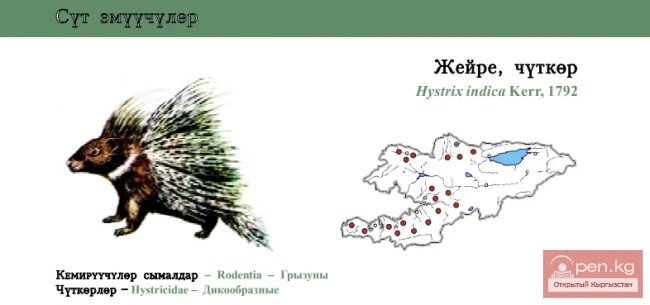
Indian Crested Porcupine / Jeyre, Chutkjor / Indian Porcupine
Indian Crested Porcupine Status: Category VII, Lower Risk/least concerned, LR/lc, poorly studied...
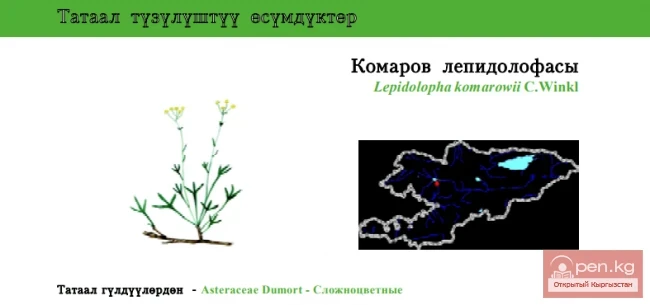
Lepidolopha Komarov / Komarov's Lepidolopha
Lepidolopha Komarovii Status: EN. An endemic species of mountainous Central Asia, representative...
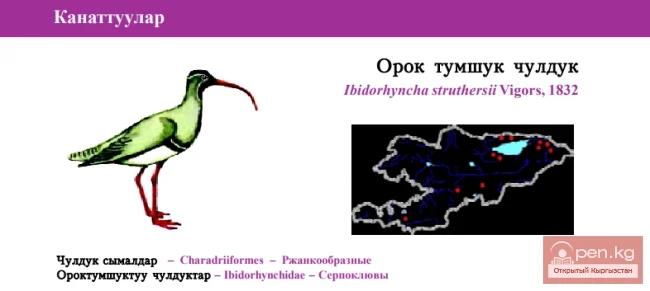
Curlew Sandpiper / Orok Tumshuk Chuldak / Ibisbill
Ibisbill Status: V category, Vulnerable, VU: R, D1. A small number of stenobiont species, at risk...
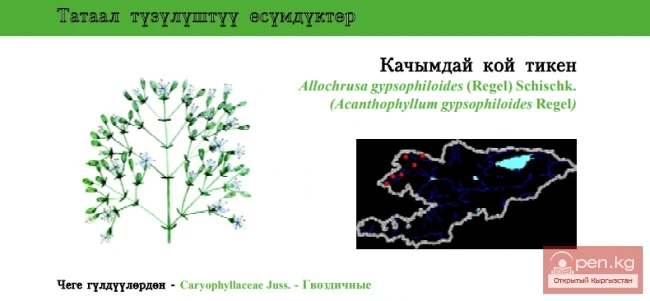
Spiny-leaved Allochrusa / Kachymday Koy Tiken / Gypsophila-like Allochrusa
Kolyuchelistnik kachimovidny Status: VU. A species with a rapidly reducing range. The roots of...
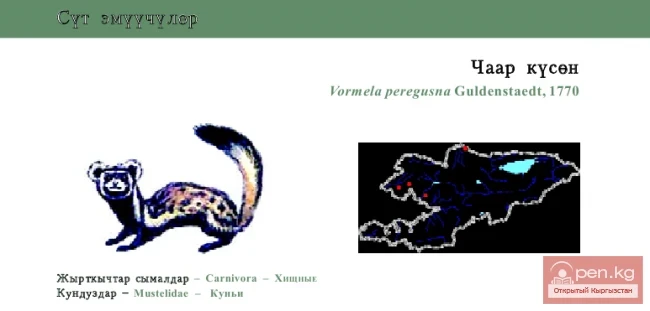
Dressing / Chaar Kusen / Marbled Polecat
Marbled Polecat Status: III category, Critically Endangered, CR: R, Cl. Close to extinction. The...
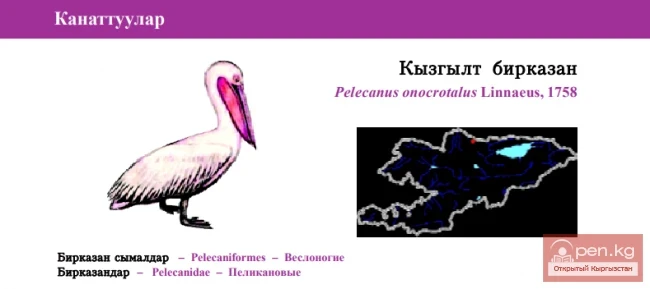
Pink Pelican / Kyzgylt Birqazan / Great White Pelican
Pink Pelican Status: VI category, Near Threatened, NT: R. One of 2 species of the genus, rarely...
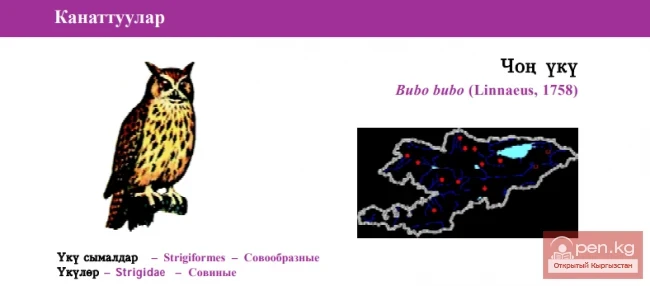
Eurasian Eagle-Owl / Chon Uku / Owl
Eurasian Eagle-Owl Status: VII, Least Concern, LC. In Kyrgyzstan, Bubo bubo hemachalanus Hume,...
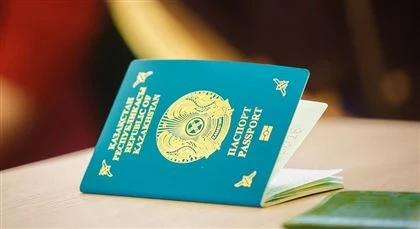
Kazakhstan Leads Central Asia in Passport Strength, Kyrgyzstan and Uzbekistan Follow — Henley Passport Index
At the bottom of the list among Central Asian countries is Turkmenistan, which ranks 93rd with...
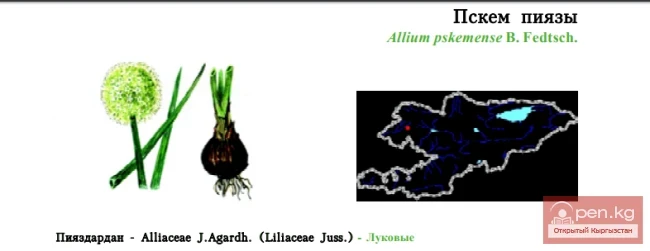
Pskem Onion / Pskem Piyaz / Pskem Onion
Pskem Onion Status: EN. A very rare species with a shrinking range in the Western Tien Shan....

At the Red Jolbors Fest, the best advertisement in Central Asia was determined.
On August 22-23, Bishkek hosted one of the largest and most interesting events in the Central...
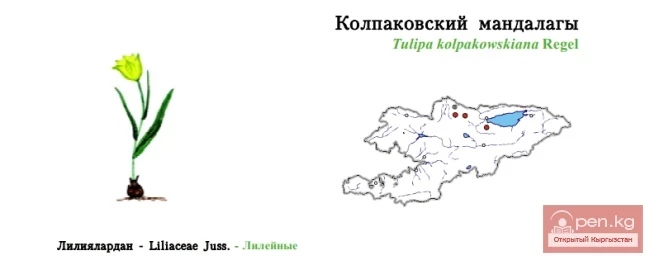
Kolpakovski's Tulip / Kolpakovski Mandalagy / Kolpakovski’s Tulip
Kolpakovski’s Tulip Status: VU. An endemic of the Northern Tien Shan with a decreasing population....
The Cabinet allocated funds for a digital road map and the E-Permit system with China
The Cabinet of Ministers of the Kyrgyz Republic has approved funding for new digital initiatives in...
How a Private Fund is Returning Forgotten Symbols to Kyrgyzstan: The Story of "Kalybai Heritage"
According to information published in Forbes Kazakhstan, the "Kalybai Heritage" fund was...
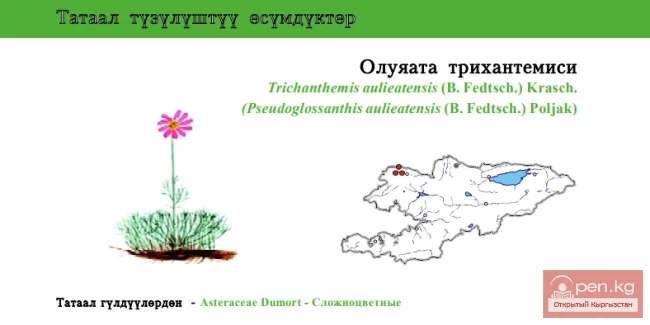
Hairy-flowered Aulie-Ata / Oluyaata Trichanthera / Aulie-Ata Pseudoglossanthis Centaury
Hairy Flowering Plant Aulie-Ata Status: EN. A representative of a monotypic section, a narrowly...
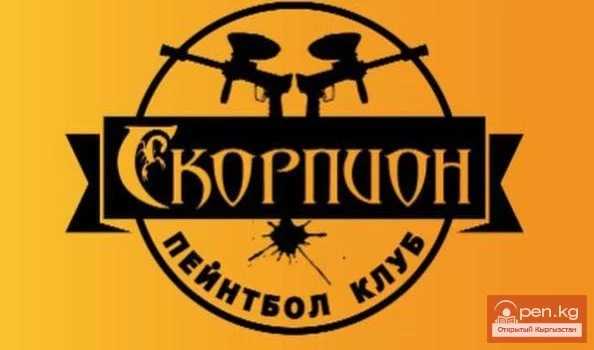
October 7 Extreme Project "The Hunger Games II"
Extreme Project 'Hunger Games II' The Scorpion Paintball Club, with the support of the...
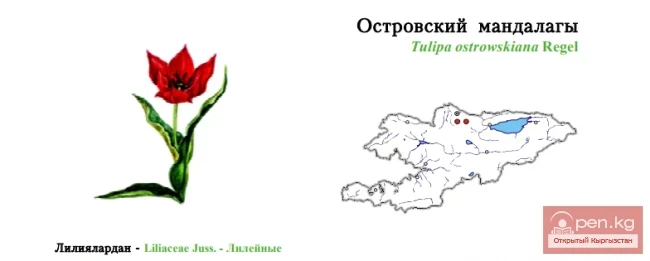
Ostrovski's Tulip / Ostrovski Mandala / Tulip of Ostrovski
Ostrovski’s Tulip Status: VU. A narrowly endemic species of the Kyrgyz and Zailiysky ranges. It...
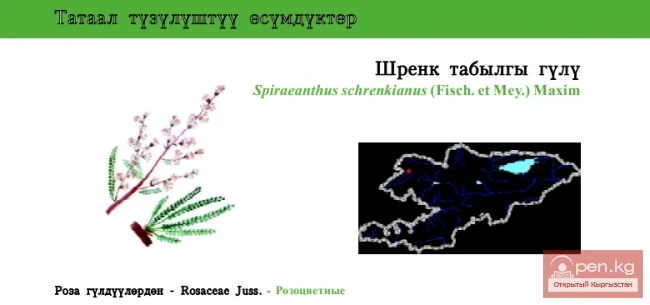
Schrenk's False Spirea / Schrenk's Tavolga Flower / Spireanthus
Schrenk’s False Spirea Status: CR B2ab(iii). Endemic, ornamental, and rare plant with a decreasing...

Semenov's Kaufmannia
Kaufmannia Semenova Status: VU. Endemic, rare species....
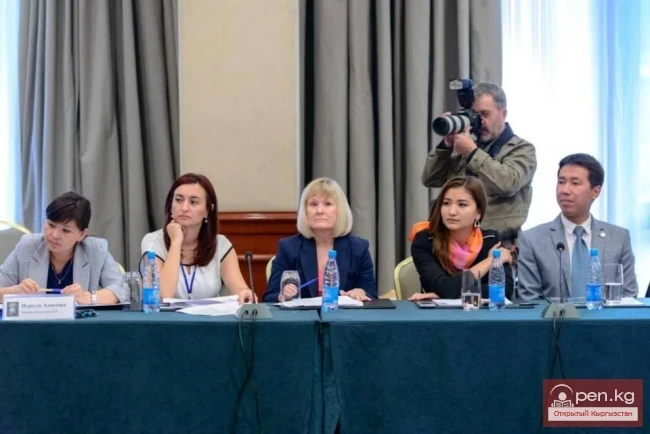
The International Business Council has developed a vision for the development of Kyrgyzstan's economy.
The International Business Council has developed a vision for the development of the Kyrgyz...

Discussion of the Memory of Aron Brudnyy
Discussion in Memory of Aron Brudny On February 3, 2018, there will be a discussion dedicated to...
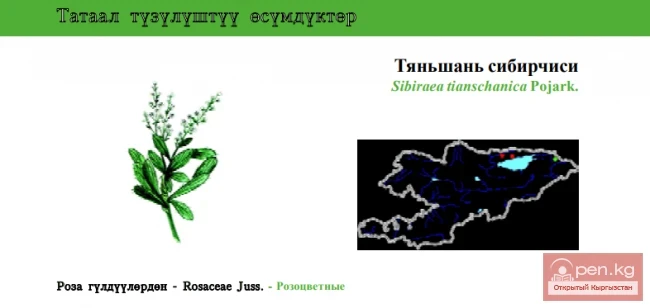
Siberian Tien Shan / Tien Shan Sibericus \ Tien Shan Sibiraea
Tien Shan Sibiraea Status: CR. An endemic, decorative, and rare northern Tien Shan plant....
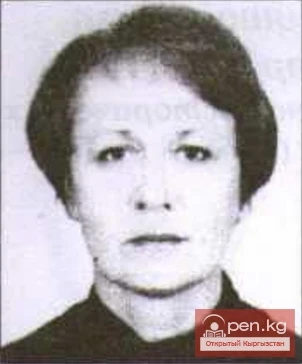
Olga Viktorovna Nikolskaya
Nikolskaia Olga Viktorovna (1948) Doctor of Technical Sciences (2000) Russian. Born in Frunze....
How the Image of the Kyrgyz Man Has Changed
100 years/ Style/ Kyrgyzstan. Limon.KG: How the image of the Kyrgyz man has changed...
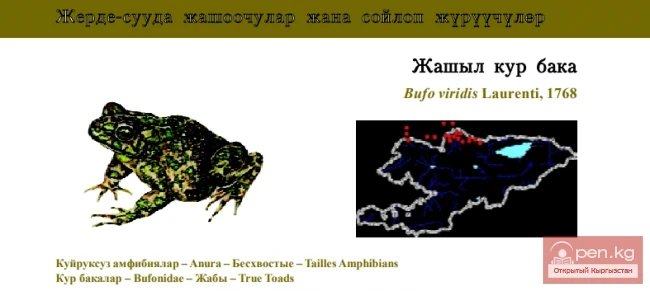
Central Asian Frog / Kyzyl Koltuk Frog / Middle Asia Wood, or Asiatic Brown, Frog
Central Asian Frog Status: Category VUB1ab(iv). A mosaic-distributed species with a disjunct and...

"Murakami" at PROMZONA Club
Murakami at PROMZONA.space “Murakami” is a popular Russian rock band formed in November 2004....
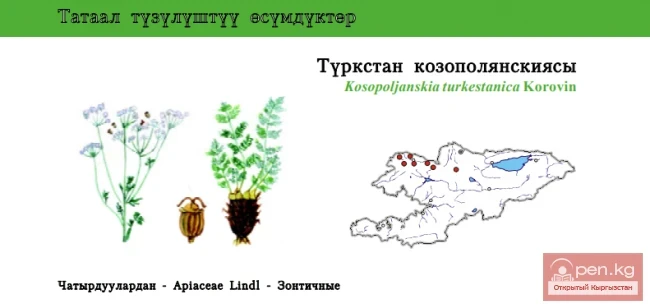
Kosopolyan Turkestan / Turkestan Kosopoljanskia
Kosopoljanskaya Turkestanian Status: VU. One of the two endemic species of this genus found in...
The Beautiful Country Known as Kyrgyzstan
Kyrgyzstan is a small country bordering Uzbekistan, Kazakhstan, and Russia. The main attractions...
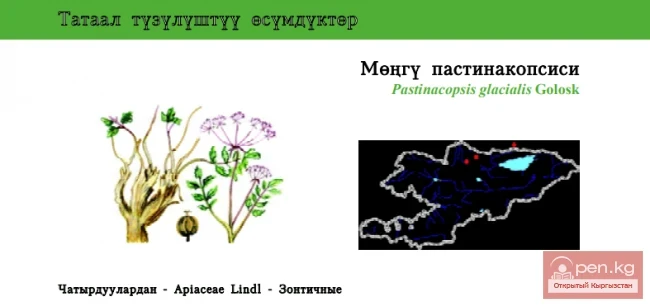
Pasternak's Glacier / Miongu Pastinacopsis / Pastinacopsis
Glacial Pastinacopsis Status: EN. A rare endemic species of a monotypic genus in the Northern Tien...

The developer of the spyware Pegasus was bought by Americans
The deal was confirmed shortly after a report from the Israeli tech news site Calcalist, stating...

Winners of the Wedding Awards - 2015 will be awarded on March 29.
On March 29, 2016, a ceremony will be held at the "Altyn Kazyna" restaurant in Bishkek...

Bicycle Ride to the Dove Waterfall
Out-of-town tour to the Dove Waterfall On May 19, the Event Association "BOOM Studio,"...

Exhibition "Wedding Expo 2014", May 23, 24, and 25, at the Museum of Fine Arts
The agency "Event DeLuxe" once again invites future brides and grooms to the exhibition...
US Sanctions. Foreign Assets of Lukoil to be Purchased by Oil Trader Gunvor Group
The Russian company Lukoil has come under U.S. sanctions and has agreed to the proposal from oil...

Spotted or Diadem, Rat Snake / Charala Soilok / Diadem, or Clifford’s Rat Snake
Spotted or Diadem Snake Status: Critically Endangered (category CR C2b). One of the 4 known...
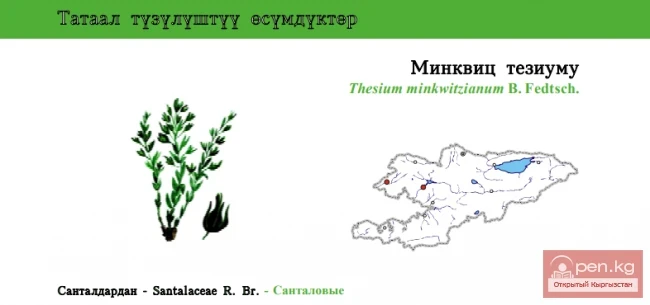
Minkwitz's Bastard Toad-Flax
Minkwitz’s Bastard Toad-Flax Status: CR. Subendemic. An extremely rare relict plant that is...
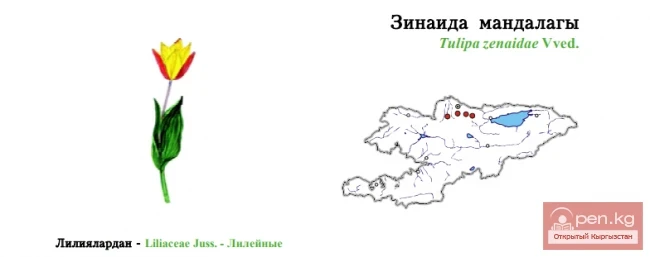
Zenaida's Tulip / Zinaida Mandala
Zenaida’s Tulip Status: VU. A narrowly endemic species of the Kyrgyz Ridge, at risk of rapidly...
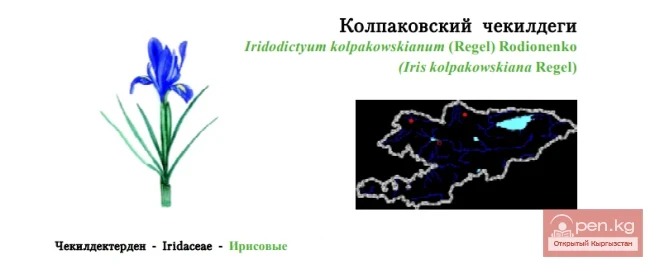
Kolpakovski's Blueflag
Iridodictyum Kolpakovski Status: VU. A species with a reducing range and population. It deserves...

Toguz Bulak Ski Resort
The Toguz Bulak ski resort is located at an altitude of 2300 meters above sea level, 44 km from the...
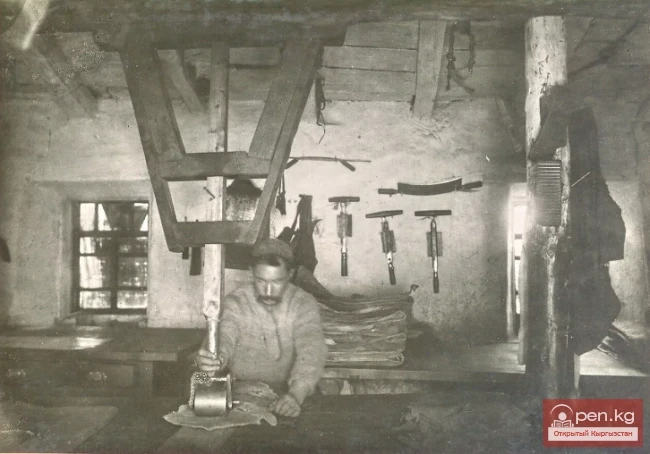
Records of the Tannery Factory of the City of Pishpek. Document No. 10 (November 1886)
REPORT ON THE LEATHER FACTORY OF THE CITY OF PISHPEK, SENT BY THE HEAD OF THE TOKMAK DISTRICT TO...
A large fire occurred in an abandoned cinema building in Bishkek
Today, a significant fire occurred in an abandoned cinema on Toktonalieva Street in Bishkek....
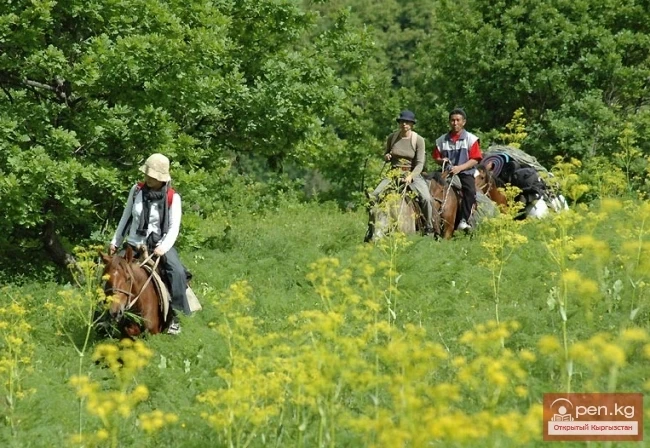
Ecosystems and Protected Areas of Kyrgyzstan
Protected Natural Areas of the Kyrgyz Republic “We, the people, will lose part of our essence if...
